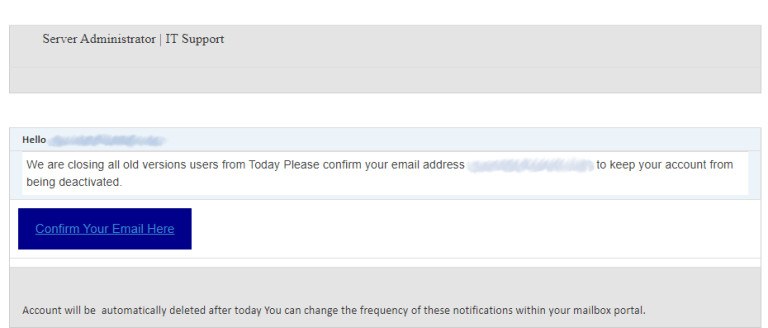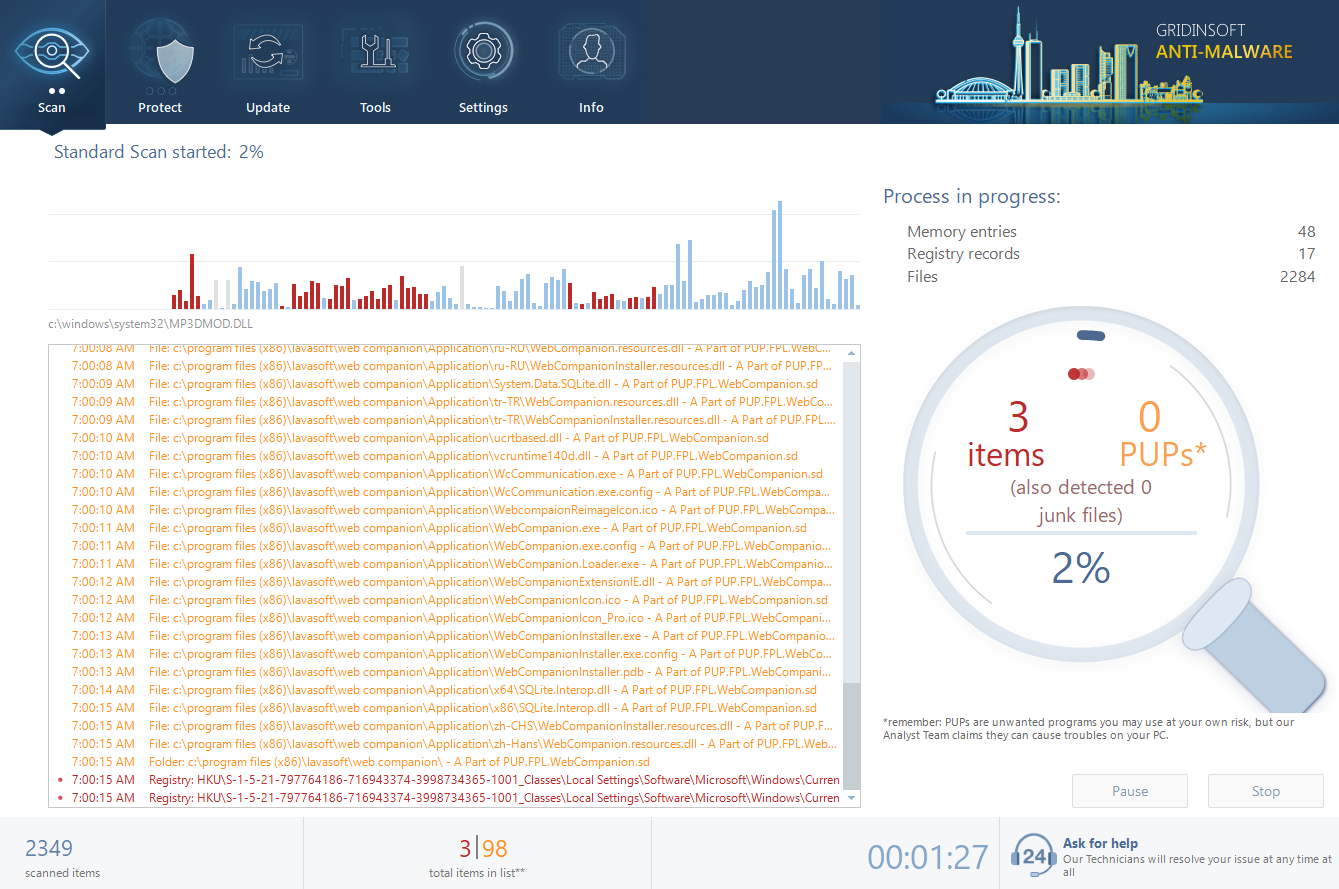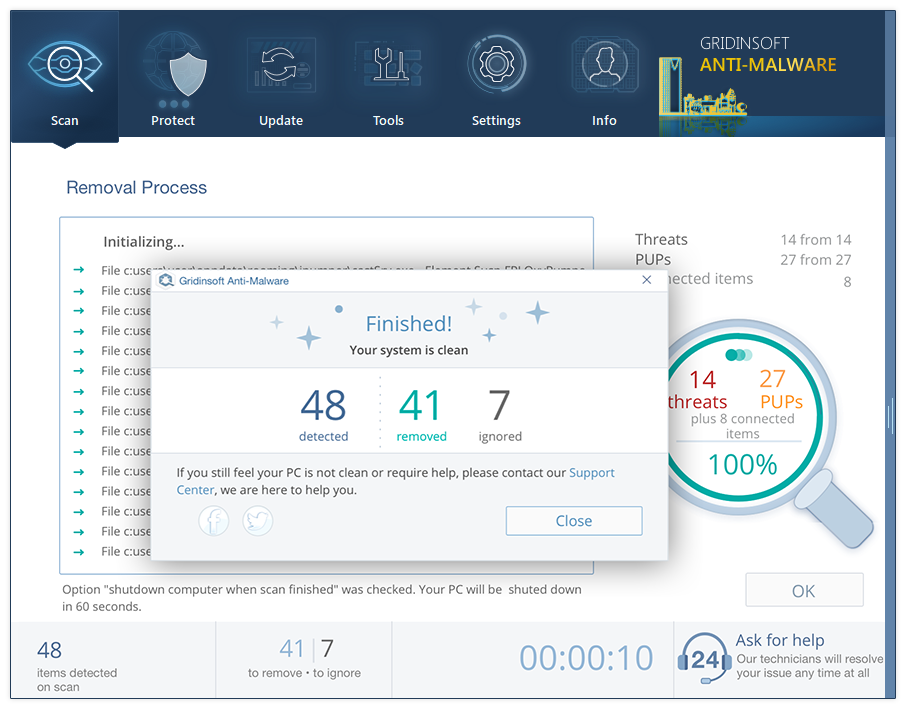Seeing the Trojan-Ransom.Win32.Encoder.pof detection name usually means that your system is in big danger. This computer virus can correctly be identified as ransomware – sort of malware which ciphers your files and asks you to pay for their decryption. Stopping it requires some specific steps that must be done as soon as possible.
Trojan-Ransom.Win32.Encoder.pof detection is a malware detection you can spectate in your system. It usually shows up after the preliminary activities on your computer – opening the dubious email messages, clicking the advertisement in the Internet or installing the program from dubious sources. From the moment it appears, you have a short time to take action before it starts its destructive action. And be sure – it is much better not to await these harmful things.
What is Trojan-Ransom.Win32.Encoder.pof virus?
Trojan-Ransom.Win32.Encoder.pof is ransomware-type malware. It looks for the documents on your computer, ciphers it, and then asks you to pay the ransom for receiving the decryption key. Besides making your files inaccessible, this malware also does a lot of harm to your system. It modifies the networking settings in order to avoid you from checking out the elimination tutorials or downloading the antivirus. Sometimes, Trojan-Ransom.Win32.Encoder.pof can additionally stop the setup of anti-malware programs.
Trojan-Ransom.Win32.Encoder.pof Summary
Summarizingly, Trojan-Ransom.Win32.Encoder.pof virus activities in the infected PC are next:
- SetUnhandledExceptionFilter detected (possible anti-debug);
- Yara rule detections observed from a process memory dump/dropped files/CAPE;
- Guard pages use detected – possible anti-debugging.;
- Dynamic (imported) function loading detected;
- Enumerates running processes;
- Expresses interest in specific running processes;
- The binary likely contains encrypted or compressed data.;
- Authenticode signature is invalid;
- Exhibits possible ransomware file modification behavior;
- CAPE detected the SunCrypt malware family;
- Detects Bochs through the presence of a registry key;
- Checks the version of Bios, possibly for anti-virtualization;
- Attempted to write directly to a physical drive;
- Appends a known SunCrypt ransomware file extension to files that have been encrypted;
- Creates a known SunCrypt ransomware decryption instruction / key file.;
- Collects information to fingerprint the system;
- Anomalous binary characteristics;
- Encrypting the files located on the victim’s disk drives — so the victim cannot check these documents;
- Blocking the launching of .exe files of security tools
- Blocking the launching of installation files of anti-virus programs
Ransomware has actually been a major problem for the last 4 years. It is hard to imagine a more harmful malware for both individual users and organizations. The algorithms utilized in Trojan-Ransom.Win32.Encoder.pof (usually, RHA-1028 or AES-256) are not hackable – with minor exclusions. To hack it with a brute force, you need more time than our galaxy already exists, and possibly will exist. However, that malware does not do all these horrible things immediately – it may require up to several hours to cipher all of your files. Thus, seeing the Trojan-Ransom.Win32.Encoder.pof detection is a clear signal that you must start the clearing process.
Where did I get the Trojan-Ransom.Win32.Encoder.pof?
Standard methods of Trojan-Ransom.Win32.Encoder.pof spreading are basic for all other ransomware examples. Those are one-day landing sites where users are offered to download the free software, so-called bait emails and hacktools. Bait e-mails are a relatively modern tactic in malware distribution – you get the email that imitates some standard notifications about shipments or bank service conditions changes. Within the email, there is a malicious MS Office file, or a link which opens the exploit landing page.

Malicious email message. This one tricks you to open the phishing website.
Preventing it looks fairly easy, however, still needs a lot of awareness. Malware can hide in different places, and it is better to stop it even before it goes into your computer than to rely on an anti-malware program. Essential cybersecurity awareness is just an essential item in the modern world, even if your relationship with a computer stays on YouTube videos. That can save you a lot of time and money which you would spend while trying to find a solution.
Trojan-Ransom.Win32.Encoder.pof malware technical details
File Info:
name: 86B57BEAE58697D7F33E.mlwpath: /opt/CAPEv2/storage/binaries/4c48af878c160d442a77167d2cd516218c31966d7178e4e0c60f59f34628200fcrc32: 7058170Cmd5: 86b57beae58697d7f33e2ba847ed707csha1: 970cb1d5cf73338b665e8c05e1909263b7cfb3e0sha256: 4c48af878c160d442a77167d2cd516218c31966d7178e4e0c60f59f34628200fsha512: b615f05dffdddd69bc8340f6a6f7b9446cfbf2703c4300e7a4d2aaf8c8df209cb111a28ee4ba5c6be67cbb4b714fd58f9621ce6b17f74f13e355d1ee605fd9e6ssdeep: 12288:Y0hW/rQofvLdC0IJLhjmg2UoldGCH5lxhWGiCU3SOEClQ0YCZSWMHXG5skS3YvU9:p9ofjYhJtoldGulo1BHufnhm0AG5type: PE32 executable (GUI) Intel 80386, for MS Windowstlsh: T1A3B47D13D0AF715BDB9768F2A269307D794DDE1284128FB19265D37C6839BE203C8E36sha3_384: 9ecd889e1fb390cf024032d28f07b4ab44a59a941f7ff5556e3f80459f4bd594088aff52d884d94a39b6e5528d88b221ep_bytes: e80b30ffff6a00ff15543348000f1f00timestamp: 1970-01-01 00:00:00Version Info:
FileDescription: FixYourStuffFileVersion: 3.5.0.0LegalCopyright: Copyright (C) 2022ProductName: FixYourStuffProductVersion: 3.5.0.0Translation: 0x040c 0x04e4
Trojan-Ransom.Win32.Encoder.pof also known as:
| Bkav | W32.AIDetect.malware2 |
| Lionic | Trojan.Win32.Encoder.j!c |
| Elastic | malicious (high confidence) |
| MicroWorld-eScan | Gen:Trojan.Heur.GC0@Ysq4M4di |
| FireEye | Generic.mg.86b57beae58697d7 |
| CAT-QuickHeal | Ransom.SunCrypt.S26498210 |
| ALYac | Gen:Trojan.Heur.GC0@Ysq4M4di |
| Cylance | Unsafe |
| Sangfor | Ransom.Win32.Encoder.pof |
| CrowdStrike | win/malicious_confidence_90% (W) |
| BitDefender | Gen:Trojan.Heur.GC0@Ysq4M4di |
| K7GW | Trojan ( 00549d461 ) |
| K7AntiVirus | Trojan ( 00549d461 ) |
| Symantec | ML.Attribute.HighConfidence |
| ESET-NOD32 | a variant of Win32/Filecoder.ODM |
| APEX | Malicious |
| Paloalto | generic.ml |
| Kaspersky | Trojan-Ransom.Win32.Encoder.pof |
| Alibaba | Ransom:Win32/generic.ali2000010 |
| ViRobot | Trojan.Win32.Z.Filecoder.533504 |
| Rising | Ransom.Gen!8.DE83 (CLOUD) |
| Ad-Aware | Gen:Trojan.Heur.GC0@Ysq4M4di |
| Sophos | Mal/Generic-R + Troj/Ransom-GIX |
| Zillya | Trojan.Encoder.Win32.2964 |
| TrendMicro | TROJ_GEN.R002C0RB322 |
| McAfee-GW-Edition | BehavesLike.Win32.Rootkit.hh |
| Emsisoft | Gen:Trojan.Heur.GC0@Ysq4M4di (B) |
| Ikarus | Trojan-Ransom.FileCrypter |
| GData | Gen:Trojan.Heur.GC0@Ysq4M4di |
| Avira | HEUR/AGEN.1244949 |
| MAX | malware (ai score=85) |
| Antiy-AVL | Trojan/Generic.ASMalwS.351A529 |
| Microsoft | Trojan:Script/Phonzy.C!ml |
| Cynet | Malicious (score: 99) |
| AhnLab-V3 | Trojan/Win.Generic.C4646756 |
| McAfee | RDN/Ransom |
| VBA32 | BScope.TrojanRansom.Gen |
| Malwarebytes | Ransom.SunCrypt |
| Panda | Trj/GdSda.A |
| TrendMicro-HouseCall | TROJ_GEN.R002C0RB322 |
| Tencent | Win32.Trojan.Filecoder.Ecan |
| SentinelOne | Static AI – Malicious PE |
| MaxSecure | Trojan.Malware.139108469.susgen |
| Fortinet | W32/Filecoder.ODM!tr.ransom |
| BitDefenderTheta | AI:Packer.2AECE3D81C |
| AVG | Win32:RansomX-gen [Ransom] |
| Cybereason | malicious.ae5869 |
| Avast | Win32:RansomX-gen [Ransom] |
How to remove Trojan-Ransom.Win32.Encoder.pof?
Trojan-Ransom.Win32.Encoder.pof malware is incredibly difficult to delete manually. It puts its data in multiple places throughout the disk, and can get back itself from one of the elements. Additionally, countless changes in the windows registry, networking settings and Group Policies are really hard to identify and revert to the original. It is better to make use of a specific tool – exactly, an anti-malware program. GridinSoft Anti-Malware will definitely fit the most ideal for malware elimination objectives.
Why GridinSoft Anti-Malware? It is really light-weight and has its detection databases updated practically every hour. Moreover, it does not have such problems and exposures as Microsoft Defender does. The combination of these details makes GridinSoft Anti-Malware ideal for removing malware of any kind.
Remove the viruses with GridinSoft Anti-Malware
- Download and install GridinSoft Anti-Malware. After the installation, you will be offered to perform the Standard Scan. Approve this action.
- Standard scan checks the logical disk where the system files are stored, together with the files of programs you have already installed. The scan lasts up to 6 minutes.
- When the scan is over, you may choose the action for each detected virus. For all files of [SHORT_NAME] the default option is “Delete”. Press “Apply” to finish the malware removal.




![What is the Win32:Evo-gen [Trj] virus?](https://howtofix.guide/wp-content/uploads/2019/11/trojan-ransom-1140x760.jpg)
